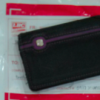As part of my Guest Blogging Series, this week I am glad to welcome back Rev. Dr. Grace Ji-Sun Kim as she muses on Mother’s Day. Grace received her M.Div. from Knox College and her Ph.D. from the University of Toronto. She is an Associate Professor of Doctrinal Theology and the Director of the Master of Arts in Theological Studies program at Moravian Theological Seminary and the is the author of two books, The Grace of Sophia: A Korean North American Women’s Christology and The Holy Spirit, Chi, and the Other: A Model of Global and Intercultural Pneumatology. Grace was recently ordained as a Teaching Elder in the Presbyterian Church (USA) and also blogs for 99 Brattle.
I can only imagine . . . how terrifying and difficult it was for my mom to bring her two little girls on a plane, via Alaska, Hawaii finally to arrive at the Toronto Pearson Airport only to find that my dad wasn’t there to greet or pick us up. As usual, he was late. It was January 17, 1975 when we immigrated from Korea to Canada. My dad had already left on his own a month earlier.
Growing up, my mother did not have the privilege of a higher education as her family was poor and she had seven siblings. She grew up during the aftermath of the Korean War and life was extremely difficult. In Korea, if there was any extra money left in the family, the boys were educated before the girls.
So I can only imagine the anxiety and trepidation she must have felt as she left Korea, got on a plane the first time in her life, without knowing a word of English and not knowing what future awaited her in a new foreign land.
I still remember the day that we left Korea. My grandmother (chin-hal-muh-nee) told me that the flight would be very long and there were no restrooms on the plane. So she made me sit in the bathroom for a very long time so that I would not have to go again till I landed in Canada. I remember my uncle (keun-ah-buh-gi) giving my sister and me a very pretty necklace (which I still have) with personal information written on the back of the pendant just in case we got lost. I remember being in the airport with my mother and sister, and uncles, aunts and cousins who came out to say their goodbyes. My sister and I carried these very big red bags that my aunts called “immigration bags” as we flew across the Pacific to an unknown territory. Every one of our family members was weeping–especially my grandmother. They thought they would never see us again.
Since I was only five, I didn’t realize the impact that day would have on the rest of my life. My mother was only twenty-nine and did not know what was waiting for her as she left Korea. She left her entire family so she could join my dad since it was his idea to leave Korea against all the wishes of his family. She left behind everything she had known; her family, her house, her community, her friends, her culture, and her history in order to start afresh in a new and foreign land. I can only imagine the fear in her heart as she obeyed my father. As many first generation immigrants can remember, it was not an easy life. It was not a “land of milk and honey” as everyone had told them it would be. Rather, it was a harsh and sometimes a heart-wrenching life.
We landed in Toronto in January during one of the harshest winters in Canada. We were so cold and miserable that I can remember just wanting to stay indoors all day long. I started kindergarten and remember being mocked by others who did not know “what” I was. Many Canadians kept asking me if I were Chinese, or Japanese. When I told them I was Korean, they said, “What is Korean?” You can’t be Korean. You are Chinese or Japanese (and other terms were used to describe me…). With the lack of English, I was a constant target of racism.
I can only imagine the frequent regret my mother must have felt when she experienced extreme isolation, loneliness, and a sense of hopelessness as she tried to adjust to a foreign land which did not welcome her or her family. In the midst of all her suffering as a result of prejudice, racism, and sexism, she endured it all in her silence. She never openly shared her pain even though it was visible on her face and her body. Like many Korean immigrant women, she suffered in silence and alone.
In the midst of all these difficulties and obstacle, my mom did her best to raise my sister and me. She provided for us in the midst of racism, subordination, sexism and prejudice. She was a good, kind, compassionate, giving, thoughtful and caring mother. She passed away on January 12, 2010 after fighting a battle with lung cancer.
Now, I can only imagine her sorrow since she did not share with me her own personal stories or dreams not yet realized, her fear, solemnity, and trepidation. I can now only imagine the pain, the suffering, and the distress she must have endured during her whole immigrant life.
But, I do not have to imagine her hard work ethic, diligence, determination and perseverance in order to survive faithfully in a foreign land. I do not have to imagine her deep love for God, her strong commitment to the church, her constant prayer, and her love for her community and family. On this Mother’s Day, I do not have to imagine that her Spirit-Chi* lives on, as I know it does within me and my own three children.
Happy Mother’s Day to all the mothers and moms-to-be! What a blessing and privilege it is to be a mother.
*Spirit-Chi is the spirit that exists in all of us which gives us energy, warmth and life. For more discussion on Spirit-Chi please see my book, The Holy Spirit, Chi, and the Other (Palgrave Macmillan, 2011).












